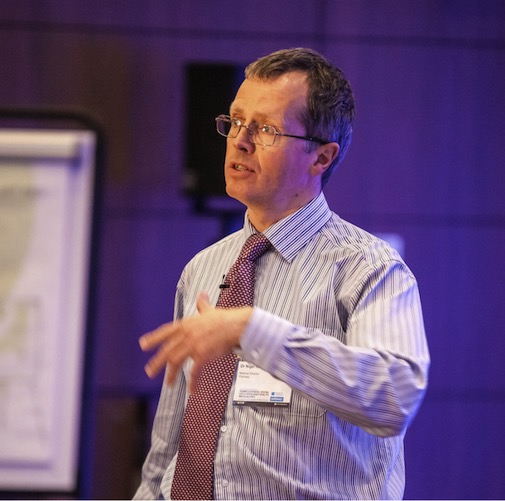I want to start by thanking my colleagues for being such a support over the years. I can’t name check everyone but:
- I must remember Aidan Halligan, our founder, inspirational speaker, and enthusiast for confrontation, who made so much progress possible.
- Trudy Boyce and Florence Cumberbatch, whose boundless compassion is a helpful counterbalance to my heartless setting of boundaries.
- Stephanie Swan, whose hard work and dogged financial prudence has ensured that our charity has thrived when many others have not.
- Alex Bax, with his commitment, renowned political nous, and world class schmoozing skills.
- Stan Burridge, and his team of EBEs with their resilience, energy, and challenge.
- Chris Sargeant, my successor, hugely experienced, involved in Pathway and the Faculty from the start, and a clinical leader for our future.
- And Sam Dorney-Smith, who never says no, and always, always gets the job done.
So, I can’t help a bit of looking back, but mainly with the aim of looking to the future.
I remember studying for my A levels in the early 70s by candlelight, when Tory tax cuts and the OPEC energy crisis had led to power cuts, the three-day week, massive unemployment, run-away inflation, and widespread poverty. I later understood that this societal trauma resulted in the many socially excluded people of my age that I went on to work with over the years. So perhaps there may be some lessons to be learned from the past!
Everything useful I know, I have learned from my patients, but clinicians still tend to be the ones who apply labels to things, so I have three labels to consider: heroic narcissism, moral injury and finally, Inclusion Health.
Heroic narcissism, the conviction that you are the only person that can save a person or resolve a situation. This is a particular personal risk for people drawn to our sort of work. But even looking back at my mainstream practice, I later realised that many of the patients I labelled as “heart-sink” patients were actually experiencing complex trauma and personality issues, and we drew each other into a co-dependent spiral of unmeetable demands and projected feelings of inadequacy and despair. I was convinced that I was the only person capable of keeping them alive. Years later, imagine my indignation, when I would bump into them at the supermarket, evidently alive and thriving without me!
Heroic narcissism is also a risk for our organisations which can mirror these dysfunctional relationships. This is abetted by a system of short term and competitive funding that leads to more splitting and drive to compete. Housing First versus Housing Ready, street outreach versus institutional in-reach, critical time interventions versus long term relationships. In fact, these are all false dichotomies; there is no shortage of people in need, and we need a variety of responses to help each person in their particular situation.
Moral injury is a term that came to the fore during the pandemic, but I recognised the experience when I saw it described. Moral injury is a damage to our values when we feel ourselves complicit in a morally wrong situation such as failing to treat undocumented migrants or discharging people to the streets. Moral injury can lead to cynicism, burnout and despair and is a real risk for all of us engaged in this work. Particularly now, when our government, after years of austerity, the financial crisis, the pandemic response and now the energy crisis and economic mismanagement, are ensuring that inequity is growing. More children are growing up in poverty and trauma and heading for long term ill health and multimorbidity. So, at least to look on the bright side, you too are all guaranteed long careers in a growing field over the coming decades.
So how can we keep going despite moral injury in difficult times? I guess the first lesson is to beware of heroic narcissism. We are all driven, passionate people but remember, it’s not all on you. Take your holidays and days off, look out for sabbaticals, find help when you are struggling. Everything changes and no-one is indispensable. Choose your battles, be ready for change, and think about seeking new roles and different opportunities every once in a while.
In my view, being a good clinician is very like parenting. Perfection is impossible and excellence is rarely achieved. Just try to be consistent and accept that the best that most of us can manage is to be good enough most of the time. To be honest, it’s all I reasonably want from any clinician in whom I’m putting my trust.
So, the final label to consider is Inclusion Health. It’s 10 years since the first annual conference of our faculty, when we came together as a scattered and isolated collection of clinicians and experts by experience to support one another and improve outcomes for our patients. Together, we have built an impressive evidence base and taken inclusion health from a made-up word to a real job title for health service leaders and a core value of the NHS.
As we face an uncertain future, we at least have the knowledge that over the last thirty years we have gathered the evidence about how to do this work well. We know that we must be kind to our patients, kind to our colleagues and kind to ourselves. Build and foster relationships, and follow the key evidence-based inclusion health approach that we summarised as individual care coordination supported by a multi-agency team. So once again, thank you all for your support.
